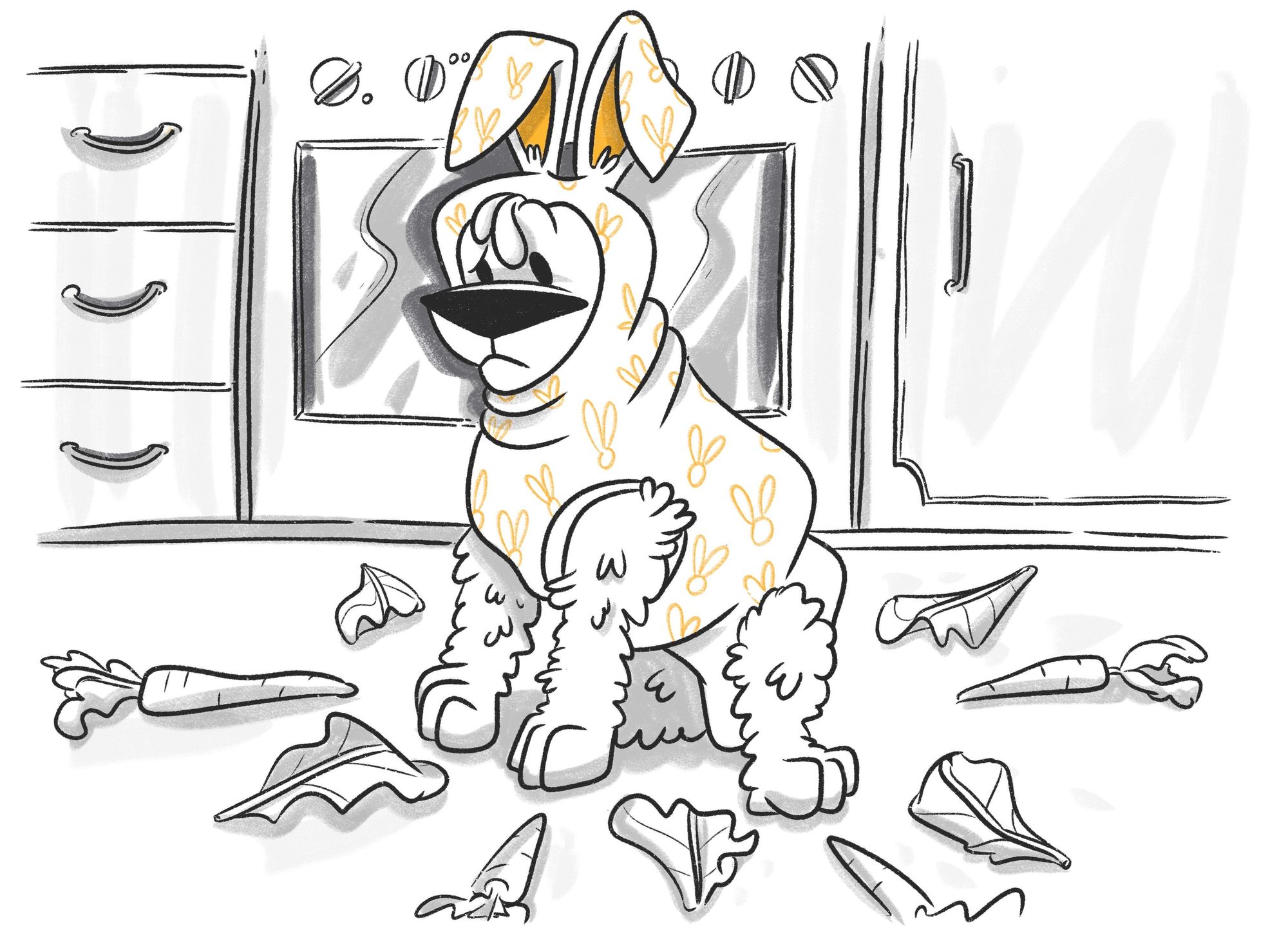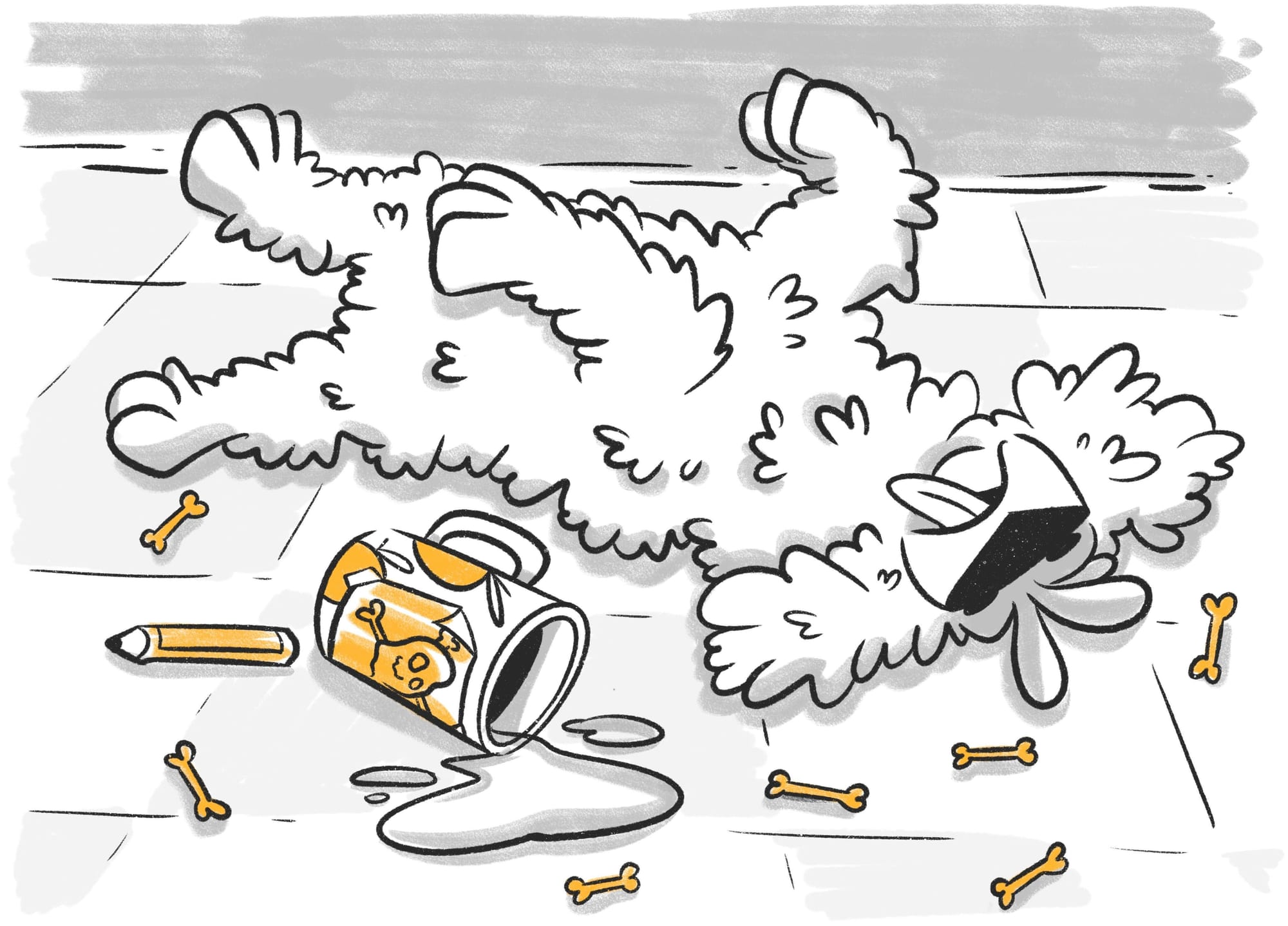Cuteness alert! You’ve got yourself a pet rabbit, and what an amazing, bouncy little pet it is! With long ears and a cute little tail, the humble rabbit is a firm favorite in homes across America. According to recent studies, more than 2.2 million rabbits live in over 1.5 million homes across the country.
That’s a lot of bunnies!
Content:
- What Do Wild Rabbits Eat?
- What Do Pet Rabbits Eat?
- What Human Foods Can Rabbits Eat?
- How Often Should I Feed My Rabbit?
- What Are the Best Rabbit Treats?
- Water Requirements for Bunnies
- What NOT to Feed a Pet Rabbit
- FAQ
What Do Wild Rabbits Eat?
Wild rabbits (those that do not live in hutches in homes or gardens) eat a whole bunch of greenery, and they are actually seen as a bit of a pest in some parts of the world. Devouring flower gardens and vegetable patches in no time at all, this herbivorous floppy-eared character enjoys the likes of grasses, clover patches, shrubs, stems, and the leaves and bark of fruit trees.
If it’s green, grows out in the world, and looks to be fresh and edible, a rabbit will eat it.
As a side note, rabbits are much pickier than you’d think when it comes to food. They will almost always choose the freshest of plants over dead or dying leaves. In many cases, they will travel further or even climb higher (trees, for example) to get to the best parts of the plant.
What Do Pet Rabbits Eat?
Domesticated rabbits – the type you have at home – will eat the same things as wild rabbits as they hop and wander around the back garden. According to research, it is believed that, on average, rabbits eat for approximately sixty minutes per day, grazing just as cows and sheep do.
However, you will more than likely need to make fresh water and rabbit-appropriate food available in the hutch (or similar). Besides, you can always check on your rabbit while you are away from home with the help of Petcube's interactive pet camera. Not only it can be placed right by your bunny's home/bowl, but you will also be able to hear and interact with your beloved pet by voice and audio.
Your rabbit’s everyday diet should consist of:
- Fresh grass or hay – this should make up the majority of your bunny’s diet (unlimited, always available).
- Leafy greens, fresh fruit, and vegetables – around 10%.
- Fiber-rich pellets – 5% or under.
What Human Foods Can Rabbits Eat?
If you’re hunting around in your kitchen, you can feed your pet rabbit(s) the following things:
Vegetables
- Spinach;
- Celery;
- Cabbage;
- Broccoli;
- Kale;
- Watercress;
- Marrow;
- Pumpkin;
- Mange tout;
- Pepper;
- Carrots (rarely – high sugar content, roots, and tops are best);
- Sweet potato (rarely – high sugar content).
Fruits
Most fruits contain too much sugar to feed rabbits safely, but they can enjoy very small amounts of the following treats, once or twice per week:
- Apples – without seeds;
- Pineapple;
- Bananas;
- Berries – strawberries, raspberries, cranberries, blueberries, blackberries;
- Oranges;
- Grapes;
- Cherries;
- Nectarines;
- Melon;
- Kiwi;
- Plums;
- Pears.
Dairy
You should never feed your rabbit dairy products. They are not built to consume or digest lactose, which is found in dairy products. Because of this, even a small amount in their diet can make them rather unwell, with problems such as bunny diarrhea and other gastrointestinal complications.
Feeding your rabbit dairy products can, in some cases, be fatal.
Seeds
Muesli-style foods are not recommended for rabbits, despite what it might say on the packaging. Those seed and nut-based foods are fine to feed your bunny from time to time, but they are definitely not the best or healthiest thing you could feed them. Most rabbits will pick out the high-sugar bits they like, leaving the healthier parts behind.
Although some seeds are okay for rabbits to eat, such as shelled sunflower seeds, they don’t offer anything in the way of nutrition.
Herbs
- Thyme;
- Basil;
- Mustard greens;
- Coriander;
- Dill;
- Parsley;
- Mint;
- Fennel.
Other
- Dandelion leaves;
- Marigolds;
- Roses;
- Sunflowers.
How Often Should I Feed My Rabbit?
You will need to feed your rabbit according to their breed and size. Hay should be always available, not just for bedding, but also for your pet to eat. The hay should be changed regularly, however.
High-fiber pellets make up a small part of your rabbit’s diet. The average bunny, which weighs approximately 5 to 10 pounds, will need barely one-quarter of a cup per day. Ideally, this will be spread out over two feeds – morning and night.
When it comes to the fresh stuff – leafy greens and vegetables – you should aim for roughly two handfuls per day, spread out over two feeds.
Fruits and treats should be fed to your bunny sparingly. They are meant to be treats, after all.
What Are the Best Rabbit Treats?
The best rabbit treats are the ones your pet likes the most – and I bet it won’t be carrots!
Most rabbits go wild for dandelion leaves and similar garden weeds, so you could always grab a handful of those to show your pet some love.
Any of the rabbit-safe foods in the ‘fruits’ section above are great for treats – but they can be dangerous and bad for your pet’s health in large amounts.
Ideally, you will want to avoid commercially sold rabbit treats. They are often very high in sugar content, which is not good for your pet’s health.
Water Requirements for Bunnies
Some studies have shown that water is even more important than food to rabbits. Even when a rabbit has a lot of food on offer, it will lose weight and become unwell when there is not enough fresh water.
Bunnies drink a lot of water to help digest all the high-roughage plant material they eat. If they don’t get enough fresh water, they won’t be able to digest food properly.
Your pet rabbit will get water from fresh produce, such as fruits and vegetables, as well as outdoor grasses. It won’t be enough, however. Just as you need to provide food for your bunny even when they have outdoor time, you will also need to provide a constant supply of clean, fresh water.
Water should be changed daily, checked in the morning and evening, and topped up if necessary. This is especially the case during hot weather.
Some rabbits prefer bowls, others will happily drink from bottles. This often comes down to the pet parent’s preferences, too. Bottles are easier to maintain and keep clean.
What NOT to Feed a Pet Rabbit
You should not feed your pet rabbit freshly cut grass. Lawnmower clippings are toxic to them.
The list of houseplants that is toxic to rabbits is incredibly long, so it is recommended to keep rabbits and houseplants completely separate at all times.
Many garden flowers and their bulbs are also toxic to bunnies or can make them unwell. This includes tulips, daffodils, bluebells, and other flowers that are grown from a bulb; rhubarb leaves; and the plants of tomatoes, potatoes, aubergines, and onion.
Lettuce isn’t recommended, but the darker types are slightly better for your bunny than the lighter ones. However, only small amounts should be given, and it should be introduced to your pet’s diet slowly, bit-by-bit.
Other foods and plants you should avoid feeding your rabbit include:
- Avocado;
- Meat;
- Eggs;
- Seeds of fruit;
- Chocolate;
- Beans – kidney beans & broad beans;
- Mushrooms;
- Human process food, such as crisps and pasta;
- Potatoes (raw);
- Leeks (raw);
- Garlic (raw);
- Onion (raw).
FAQ
Can rabbits eat raisins and sultanas?
Yes, they can. Just as with other fruits, however, they are high in sugar, which is not good for your pet.
Can rabbits eat sunflower seeds?
Yes, they can – but only in small amounts and when they are removed from the shell first.
Can rabbits eat ice cream?
No, rabbits cannot eat ice cream. Rabbits and dairy are NOT a good mix. The latter makes the former very unwell.
Was this article helpful?
Help us make our articles even better









